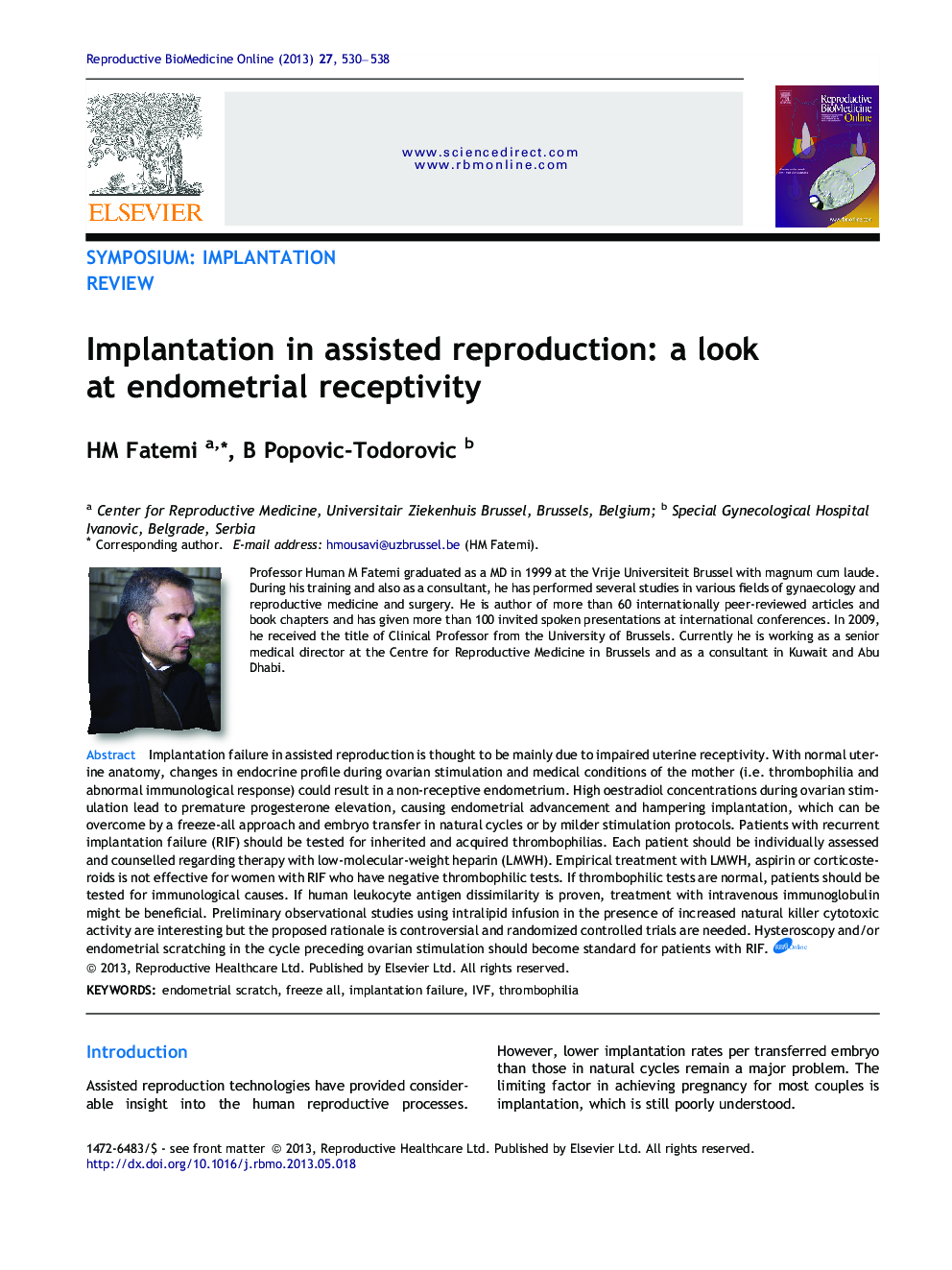| کد مقاله | کد نشریه | سال انتشار | مقاله انگلیسی | نسخه تمام متن |
|---|---|---|---|---|
| 3970497 | 1256728 | 2013 | 9 صفحه PDF | دانلود رایگان |

Implantation failure in assisted reproduction is thought to be mainly due to impaired uterine receptivity. With normal uterine anatomy, changes in endocrine profile during ovarian stimulation and medical conditions of the mother (i.e. thrombophilia and abnormal immunological response) could result in a non-receptive endometrium. High oestradiol concentrations during ovarian stimulation lead to premature progesterone elevation, causing endometrial advancement and hampering implantation, which can be overcome by a freeze-all approach and embryo transfer in natural cycles or by milder stimulation protocols. Patients with recurrent implantation failure (RIF) should be tested for inherited and acquired thrombophilias. Each patient should be individually assessed and counselled regarding therapy with low-molecular-weight heparin (LMWH). Empirical treatment with LMWH, aspirin or corticosteroids is not effective for women with RIF who have negative thrombophilic tests. If thrombophilic tests are normal, patients should be tested for immunological causes. If human leukocyte antigen dissimilarity is proven, treatment with intravenous immunoglobulin might be beneficial. Preliminary observational studies using intralipid infusion in the presence of increased natural killer cytotoxic activity are interesting but the proposed rationale is controversial and randomized controlled trials are needed. Hysteroscopy and/or endometrial scratching in the cycle preceding ovarian stimulation should become standard for patients with RIF.Implantation failure in assisted reproduction is thought to be mainly due to impaired uterine receptivity. In the presence of normal uterine anatomy, changes in endocrine profile and the medical conditions of the mother (i.e. thrombophilia and abnormal immunological response) could result in non receptive endometrium. Patients with recurrent implantation failures should be tested for inherited and acquired thrombophilias. Each patient should be individually assessed and counselled regarding therapy with low-molecular-weight heparin (LMWH). Empirical treatment with LMWH, aspirin or corticosteroids is not effective for women with RIF who have negative thrombophilic tests. Hysteroscopy and/or endometrial scratching in the cycle preceding ovarian stimulation should become a standard for patients with recurrent implantation failure.
Journal: Reproductive BioMedicine Online - Volume 27, Issue 5, November 2013, Pages 530–538